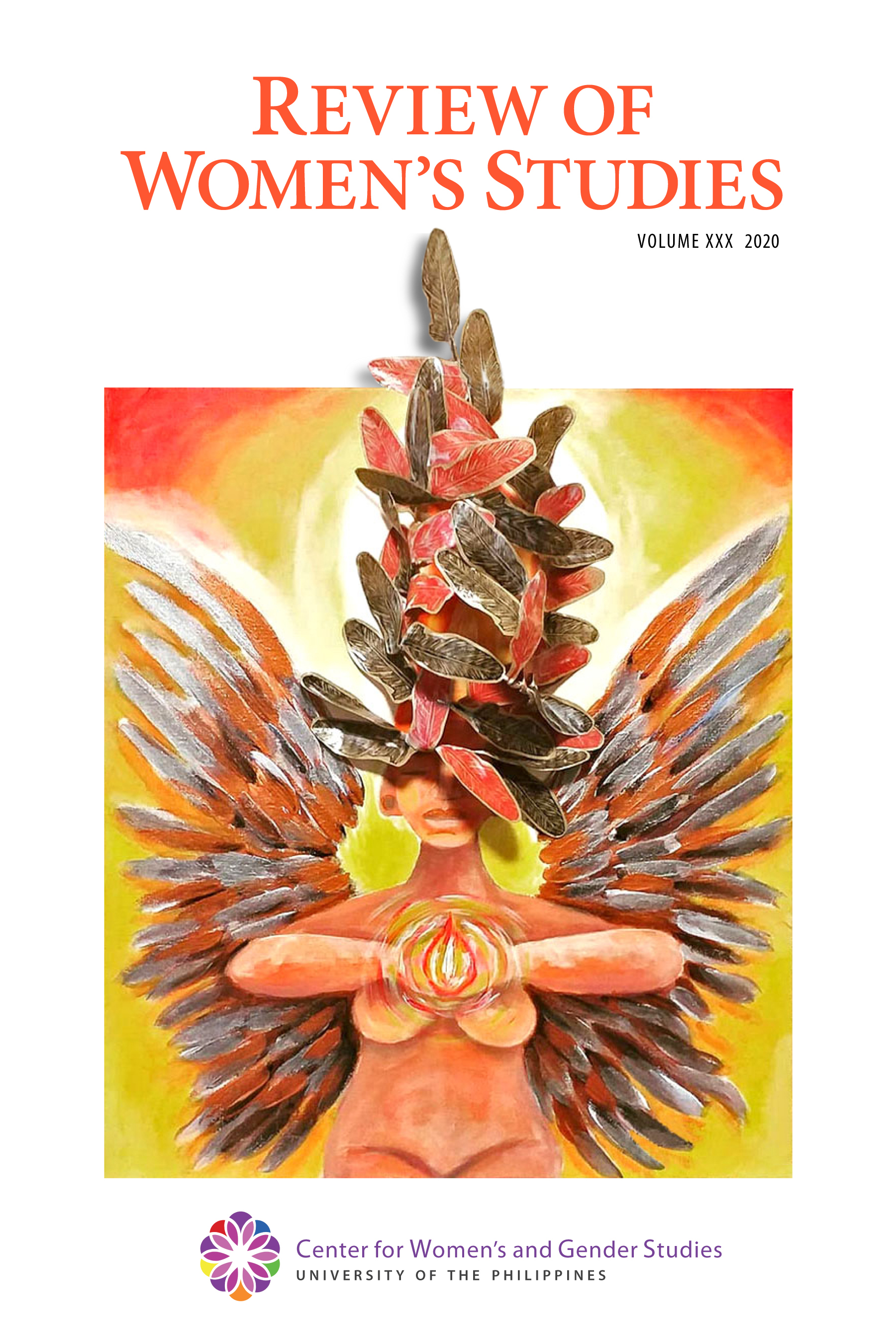Populism, Patriarchy, Protest: Feminist Issues, Responses, and Actors During the First Three Years of the Duterte Administration
Abstract
The rise of populist leaders, such as Rodrigo Duterte in the Philippines, is one of the recent challenges to feminist movements. Feminist response in the country, which has a long and continuing history of strong feminist movements, is therefore inevitable. This paper is thus interested in the feminist protests during the first half of Duterte's term of office, aiming to draw insights into his populism as it connects to patriarchy.To answer this, a sample of feminist protest against events and issues connected to the Duterte administration between 2016 and 2019 in the Philippines were thematically analyzed. The following types of feminist issues were observed: public remarks and behavioral displays, major policies and their impacts, and political decisions. Meanwhile, protests came in the following forms: formal statements or speeches; demonstrations, rallies, and marches; and then campaigns, legal actions, direct assistance to affected communities. Finally, actors ranged from private citizens, government officials, and groups varying from independent organizations to large networks.
The data point to patriarchy as the substance of the Duterte administration and populism as the style, distinguishable but inextricable from each other. Feminist protests, actors, and the issues they raise effectively provide counter-narratives to both patriarchal assumptions and populist rhetoric. However, the paper posits that the current political moment should be considered a learning opportunity for the feminist movement as it reveals the fragility of feminist gains over the years, as well as takes note of a new character of the feminist movement.
The rise of populist leaders is one of the recent challenges to feminist movements across the world, pushing their gains back and creating new issues of concern. In the United States, Donald Trump, who has been president since 2016, reinstated the "global gag rule," or the withdrawal of funding support for any health organization offering abortion services (Associated Press, 2017). Meanwhile in Brazil, Jair Bolsonaro, elected as president in 2019, had been criticized by tribal women for his "genocidal policies" that destroy the Amazon, promote large-scale mining, and threaten the life of indigenous peoples (Agence France-Presse, 2019). In the Philippines, we have Rodrigo Duterte, president since 2016.
This paper takes off from the connectedness of populism and patriarchy. As an ideology, populism is understood as a belief; as a discursive style, it is considered as language or rhetoric; and as a political strategy, it is regarded as a guide to making and carrying out political decisions. But at its core, populism is characterized by the promotion of a distinction between the interests of the majority of the population and the few powerful elite, with a strong leader speaking - or claiming to speak - for the people (Gidron & Bonikowski, 2013).
Such central focus on a singular opposition between the masses and the elites, however, tends towards the assumption of homogeneity of either group; and this could mean the neglect of other issues of inequality. In fact, appealing to the masses may mean taking advantage of existing power structures - such as patriarchy - and as a result reinforcing them. Opposition to the populist leaders is furthermore easily drowned out as they take cover in the assumption that they are speaking for the masses. They take this as license, for instance, to exhibit misogyny. As Juego (2018) observes:
A distinctive characteristic of populism is its capacity for catch-all politics and cross-class alliances which, in turn, have a divide-and-rule effect among possible opposition groups…They choose to be unconstrained by the norms of political correctness, and this enables them to publicly express popular beliefs and opinions, such as machismo and sexism, that are held deep in the psyche of many people. (p. 6)
Duterte's leadership style fits common definitions of a populist, and how it links with patriarchy. According to Quintos-Deles (2018), this is characterized by: 1) the polarization between "the masses" and "the elite," the former of which he claims to be a part; 2) a projection of himself as an "outsider" to the established order of elite politicians since he is from Mindanao and despite himself being part of a political family in Davao; 3) the creation of a crisis that becomes the rationale for a flagship program such as the War on Drugs; 4) a projection as a "strongman" in the way he claims to be able to solve long-standing problems such as traffic and corruption; 5) exhibiting "bad manners and defiance of protocols"; and 6) the extensive use of social media in promoting these narratives (pp. 34). Other authors echo these observations, emphasizing his "adversarial and divisive political style," (Mendoza, 2018); "crass politics" (Curato & Ong, 2018); and "performative violence" (McCoy, 2017). The significance of Duterte's populism where gender is concerned has also been the focus of a few authors, pointing out his display and thus promotion of masculinity from the orthodox towards the toxic (Evangelista, 2017; Alqaseer, 2019) as well as on the negative impact of populism on gender equality in the Philippines (Quintos-Deles, 2018). A common emphasis is on his public remarks that objectify women but which are often claimed to merely be jokes that are meant to bring laughter to and entertain the public (Mercado, 2019). Another critique falls on the blindness of his policies to women, such as his War on Drugs which has incurred an estimated 30,000 deaths (Ramos, 2019) and in which women as direct victims or surviving wives, mothers, and grandmothers are gravely affected.
Published
2023-05-12
How to Cite
LAGUILLES-TIMOG, Rowena A..
Populism, Patriarchy, Protest: Feminist Issues, Responses, and Actors During the First Three Years of the Duterte Administration.
Review of Women's Studies, [S.l.], v. 30, may 2023.
ISSN 0117-9489. Available at: <https://journals.upd.edu.ph/index.php/rws/article/view/9090>. Date accessed: 04 sep. 2025.
Section
Articles


